Contents
If you have a pair of binoculars but if they’re not cleaned properly, they can become blurry and difficult to use. The following guide shows you how to clean binoculars and keep them in good condition.
Binoculars are an important tool for birders, hunters, and outdoor enthusiasts. But, like any other optical instrument, they require regular cleaning and maintenance to function properly.
Cleaning Lenses of Binoculars
Cleaning the binoculars lenses are important because it ensures that the lenses are free of dirt, dust, and smudges. This allows for a clear view when using the binoculars. Dirt, dust, and smudges can obstruct the view when looking through the lenses.
You can clean your lenses by using these ways:
Use a Lens pen
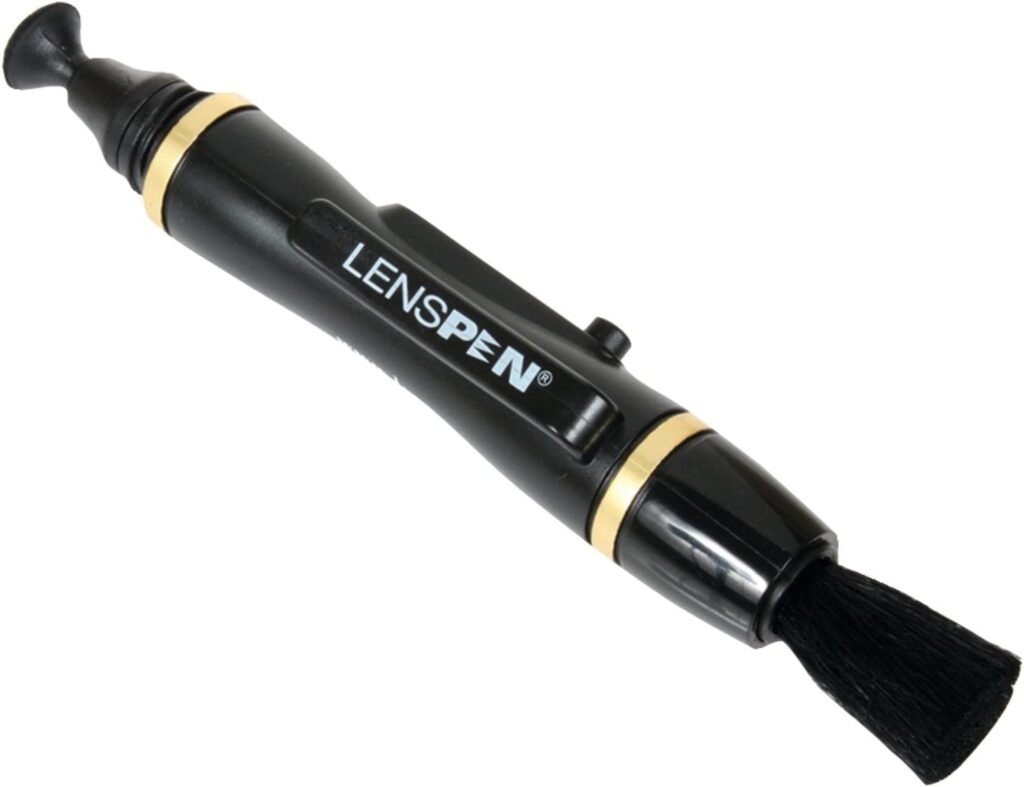
A lens pen is a small, portable tool that can be used to clean the lenses of binoculars. The pen has a soft, absorbent tip that can be used to gently wipe away dust, dirt, and fingerprints. The pen also has a small brush that can be used to remove debris from the lenses.
Use a Lens Cleaner Solution
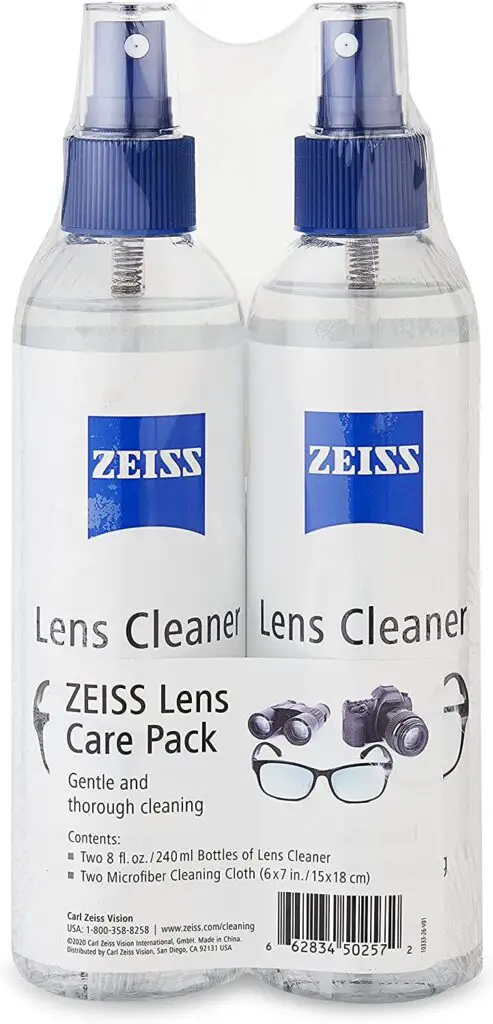
Lens cleaner solution can be useful in cleaning the binoculars lenses by breaking up any dirt, dust, or grime that may be on the lenses. This can help to improve the clarity of the lenses and help you to see more clearly.
A soft Piece of cloth
Use a soft, clean cloth to wipe the lenses down. Be sure to use circular motions and avoid wiping in a back-and-forth motion, as this could scratch the lenses.
Cleaning the Body of Binoculars
The binoculars body can harbor dirt, dust, or other materials that can interfere with the function of the binoculars. Additionally, cleaning the binoculars body can prevent the transfer of these materials to the lenses, which can kdegrade the quality of the image.
Cleaning Interior
If the interior of the binoculars body is not clean, mold and mildew can grow inside the binoculars, which can damage the lenses and the binoculars body itself
You can clean the interior of binoculars yourself, but it is not recommended. Binoculars are delicate instruments, and even a small amount of dust or dirt in the interior can cause distortion and blurriness. It is best to leave the cleaning to a professional.
Cleaning Exterior
It is important to clean the exterior of binoculars because dirt and fingerprints can affect the quality of the image.
To clean the exterior of your binoculars, start by removing any dirt or debris with a soft, dry cloth. If there are any stubborn spots, you can use a mild soap and water solution. Be sure to avoid using any harsh chemicals or abrasives, as these can damage the finish of your binoculars..
Rubber Eye Cups
If the eye cups are dirty or dusty, it can interfere with your vision and make it difficult to see clearly.
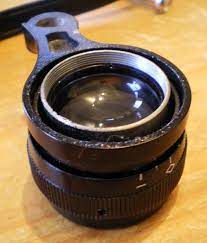
The best way to clean rubber eye cups is to use a mild soap and water solution. Gently rub the solution into the eye cups with a soft cloth. Rinse the eye cups with clean water and dry with a soft cloth.
Use of Binoculars Cleaning Kit
A binoculars cleaning kit is used to clean the lenses of binoculars. The kit typically includes a lens brush, a lens cloth, and a lens cleaning solution. The brush and cloth are used to remove dust and dirt from the lenses, and the cleaning solution is used to remove fingerprints and smudges. The kit may also include a lens cap and a carrying case.
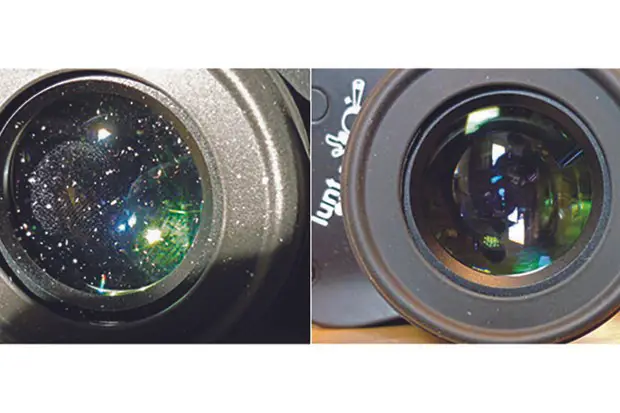
Benefit of having a binoculars cleaning kit are that you can extend the life of your binoculars, have clearer vision when using them, and keep them free of dirt and debris.
What You Need to Do to Maintain Binoculars?
These precautions will help you to keep your binoculars in good condition
Keep a Binoculars Case
A case will help to keep the binoculars from getting scratched or damaged. Additionally, a case can help to keep the binoculars from getting lost.
Use a Lens Cap
Lens Cap protects the lenses from dirt, dust, and scratches. It helps to keep the lenses clean, which is important for optimal image quality. This prevents damage to the lenses from UV rays.
Use Neck Strap
A neck strap is beneficial to use with binoculars because it helps to distribute the weight of the binoculars evenly, prevents the binoculars from bouncing around while you are walking.
Avoid to place in Direct Sunlight
When binoculars are placed in sunlight, the lenses can magnify the sun’s rays and cause them to burn a hole in the binoculars’ lenses. Additionally, the sun’s rays can cause the binoculars’ lenses to warp, making them less effective at magnifying objects.
Which tools should Avoid for cleaning Binoculars?
Avoid using any abrasive materials, such as sandpaper, when cleaning your binoculars. You should also avoid using any solvents, such as gasoline or alcohol, as these can damage the lenses.
Furthermore, it is recommended that you don’t use harsh chemicals such as bleach, which can also damage the lenses. In short, you should avoid using anything that could potentially damage the lenses of your binoculars.
Frequently Asked Questions
Can You Clean Binoculars with Glasses Cleaner?
Yes, you can clean binoculars with glasses cleaner, but it is not the best solution. Glasses cleaner is not designed to clean binoculars and will not remove all of the dirt and debris.The best way to clean binoculars is with a lens cleaning solution and a microfiber cloth.
How do You Remove Fingerprints from Binoculars?
Fingerprints can be simply removed from binoculars by wiping them with a soft, clean cloth. Remove any dirt or residue and fingerprints from the lenses by wiping them with a soft, clean cloth.You can use a lens cleaning solution if necessary.If the fingerprints still will not come off, you can take the binoculars to a professional for cleaning.
Bottom Line
Cleaning your binoculars is important for maintaining them. By cleaning binoculars you can removes any dirt, dust, or debris that could obstruct your view. It helps to prevent the build-up of fungus, which can damage the lenses and coatings. Regular cleaning will extend the life of your binoculars.

A Binoculars enthusiast, who love exploring skies and watching birds. It is my hobby to collect Binoculars of different kinds and try to explore the world through various lenses. This is all I do to explore happiness by magnifying my beautiful world.


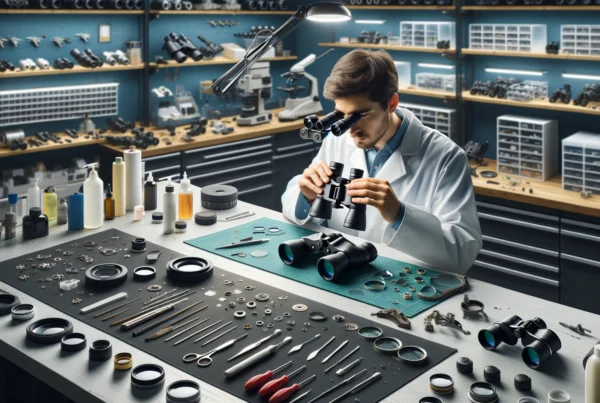
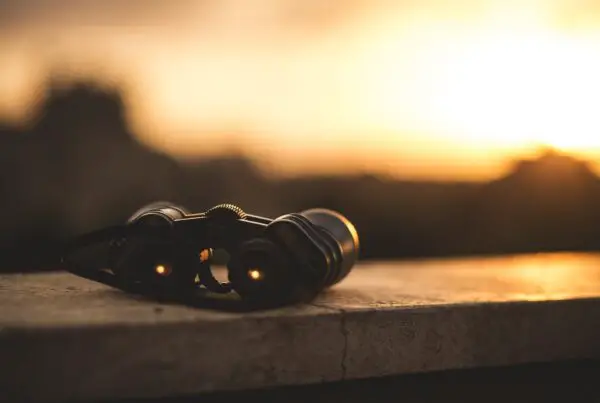

It’s hard to find knowledgeable people on this topic, but you sound like you know what you’re talking about! Thanks